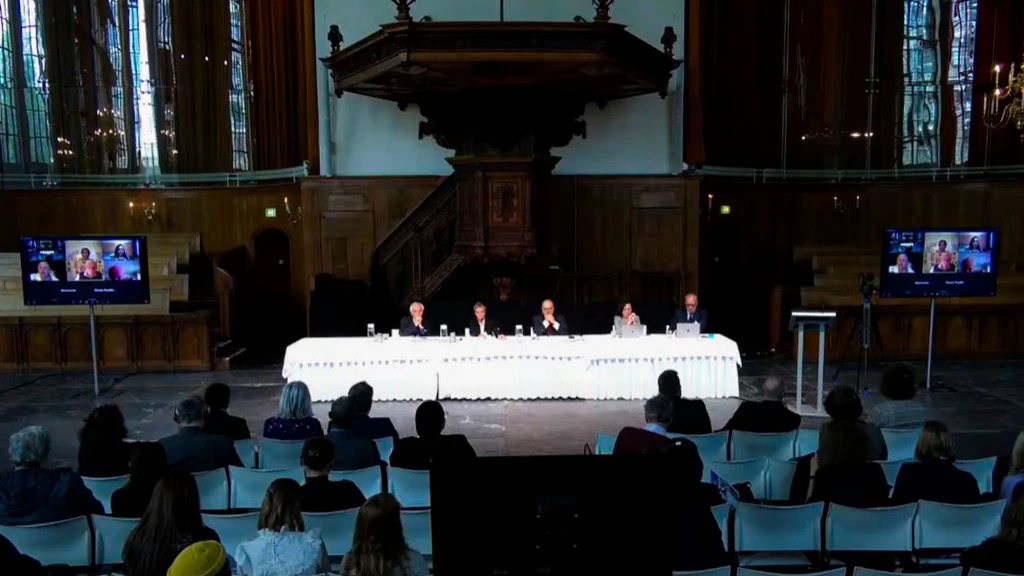In an effort to expose abuses, arrests and killings of journalists in several countries, including Syria, international judges have held court hearings in the Hague, Netherlands, to hear cases of assassinations of journalists in three countries.
On Monday, international judges in the People’s tribunal set up by three non-governmental organizations defending press freedom issued a decision convicting Syria, Mexico and Sri Lanka of “human rights violations” for failing to prosecute those responsible for the deaths of journalists there, according to AFP.
The Court called for an “independent and comprehensive” review of the mechanisms adopted to protect the media.
Over the course of six months, this people’s tribunal held hearings to hear three cases: the assassination of Nabil Sharbaji’s by the Assad regime in Syria in 2015, the assassination of Lasantha Wickrematunge in Sri Lanka in 2009, and the assassination of Miguel Ángel López Velasco in Mexico in 2011.
Impunity
At the conclusion of its hearings held at its headquarters in the Hague, the Court considered that the failure of the three countries to protect the lives of journalists indicates a lack of broader will to bring those who kill journalists to justice.
Argentine judge Eduardo Bertoni said that these three countries, through their negligent actions, in particular the failure to conduct an investigation, the failure to pay compensation to victims and impunity, were guilty of human rights violations.
Who is Nabil Sharbaji?
In 2016, Nabil Sharbaji’s family received news that he had been killed under torture.
Air Force Intelligence arrested Sharbaji in Darayya, western Damascus countryside, on February 26th, 2012. They transferred him to Damascus Central Prison Adra, then to Sednaya Military Prison in rural Damascus, and sentenced him to nine years in prison, before his family received news of his death.
People’s Tribunal
The People’s Tribunal established three of the largest NGOs active in the field of press freedom: Reporters Without Borders, Free Press Without Borders, and the Committee to Protect Journalists.
This article was translated and edited by The Syrian Observer. The Syrian Observer has not verified the content of this story. Responsibility for the information and views set out in this article lies entirely with the author.


